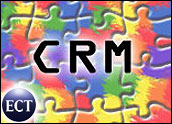
It is one of those technologies that has been predicted to explode in popularity, only to be relegated to moderate growth, and while there are still doubts, some indicate that mobile CRM may finally make its move in 2006.
There are still some issues of securing mobile access to customer data, shipping and stock information, as well as vendor and company readiness to deploy, but mobile CRM is still poised for growth given the need to keep up with the competition, industry observers said.
UK-based research firm Visiongain recently indicated that “after years of false starts,” the market for mobile CRM is ready to build on traction from 2004 and 2005 and by 2007, “should be reasonably robust on a global scale.”
Needed to Compete
In its recent study, “Mobile CRM: Re-energizing the CRM,” Visiongain predicted that mobile CRM will grow from its current portion of 10 percent of total CRM revenues to 20 percent by 2010 with steady growth forecast as the market matures.
Basex CEO and chief analyst Jonathan Spira told CRM Buyer his firm had been working with companies to enable mobile CRM for nearly 20 years. Spira said the tools have improved, and including a mobile aspect to CRM is now a requirement to compete.
“More and more customers are realizing how important it is to get just-in-time information regardless of where it resides to serve the customer better,” he said. “To not support mobile systems of CRM would be a distinct disadvantage in the competitive marketplace.”
Making a Mobile Difference
Other analysts, however, downplayed vendors’ and organizations’ readiness to take CRM on the go, despite the growing number of mobile workers.
Gartner Vice President of Mobile Computing Ken Dulaney told CRM Buyer there are still issues likely to stall mobile CRM’s growth, primarily a lack of understanding and differentiation on the part of CRM vendors.
“We still have not seen from the suite vendors a basic understanding or demonstration that mobile technologies are fundamentally different from desktop technologies,” Dulaney said.
Indicating the vendors continually deliver “subset” desktop technologies for the mobile setting, Dulaney added that solutions depending on Internet connectivity fail to address the difficulty of always-on connections in the mobile setting.
“What we’re looking for first is a clear recognition of how mobile technology is fundamentally different than desktop technology,” he reiterated.
Really Ready?
Ovum Vice President Roger Entner said while all technologies tend to go mobile along with increasingly mobile workers, mobile CRM may not meet the growth expectations for the coming year.
“A big issue is proper integration and is the company really ready for it,” Entner told CRM Buyer. “You have to change your business and your approach.”
Entner said while vendors such as SAP and Oracle would certainly like to encourage more mobile CRM, security and other issues are likely to remain significant hurdles.
Meeting Expectations
Nevertheless, Spira said there is an industry-wide recognition that mobile CRM will be an increasingly necessary component of competing and appealing to customers.
“I think everyone recognizes that a certain amount of knowledge workers are mobile, and that customers expect people to have up-to-date information with them, regardless of venue,” he said.
While Spira agreed solutions relying on 100 percent Internet connectivity are unrealistic, the analyst indicated improvements in replication and synchronization CRM solutions, which have been around nearly two decades, will help usher in broader offerings and usage.
“After 15 years, there is simply no excuse to not having this kind of technology available,” he said.














































Social CRM
See all Social CRM